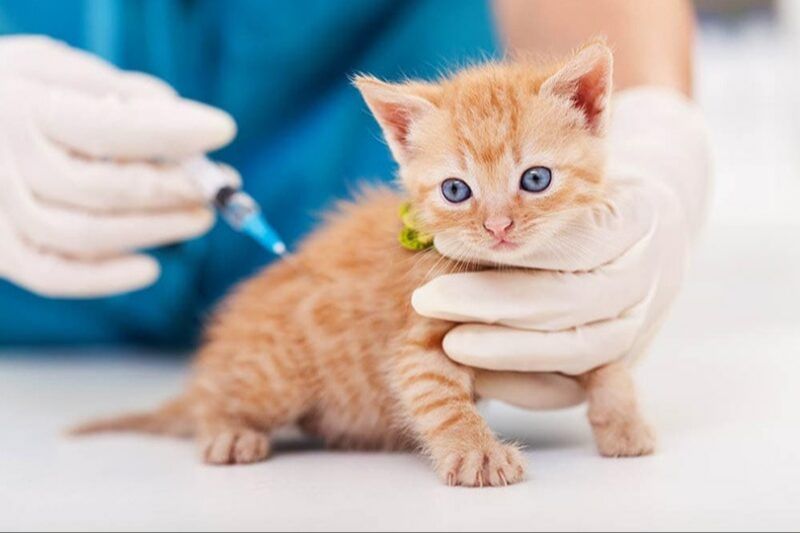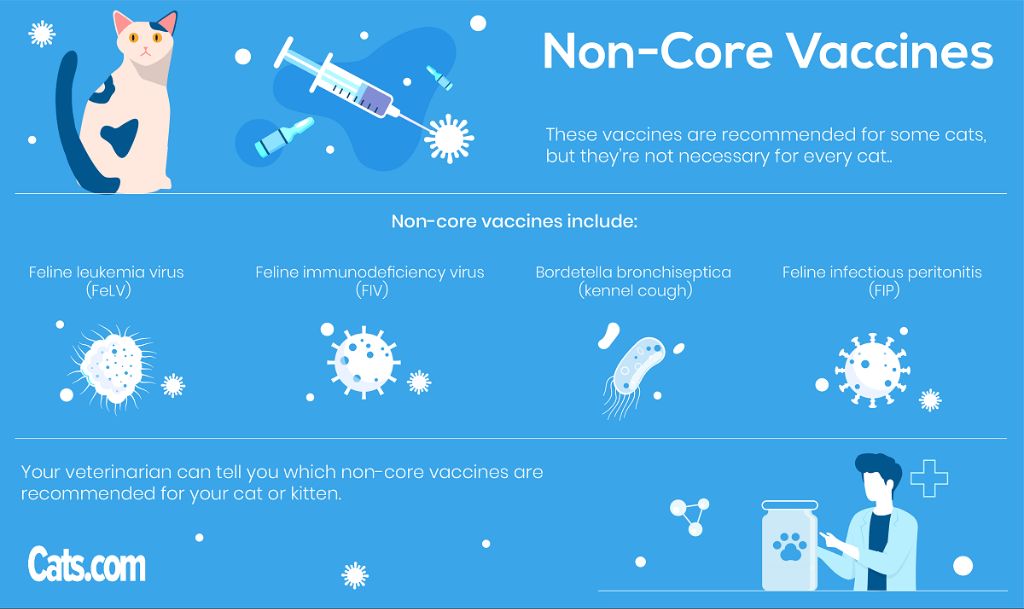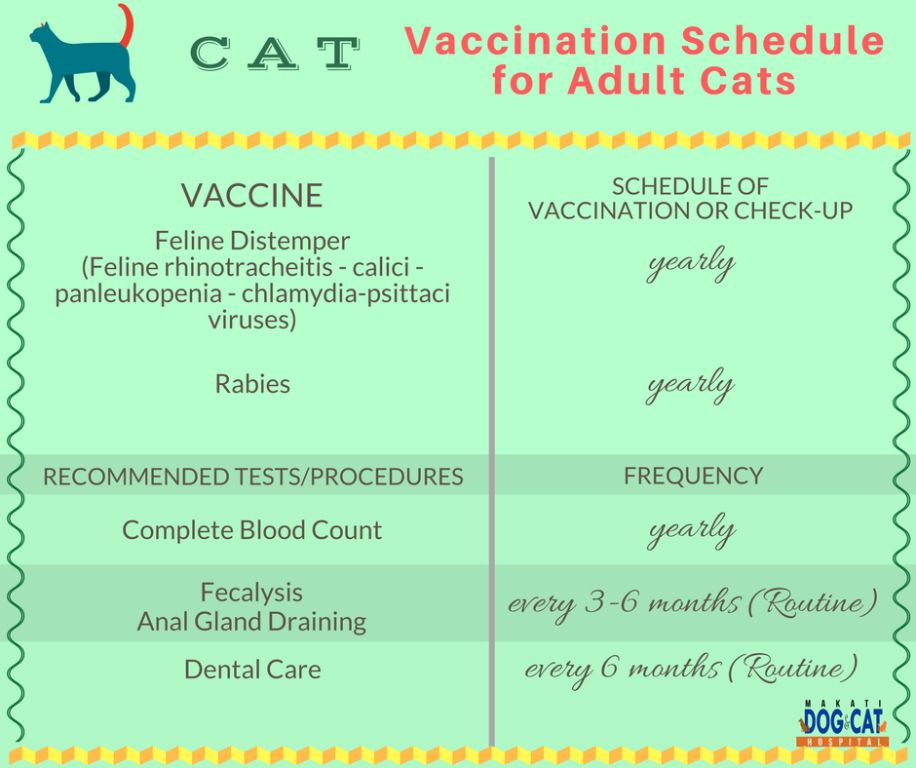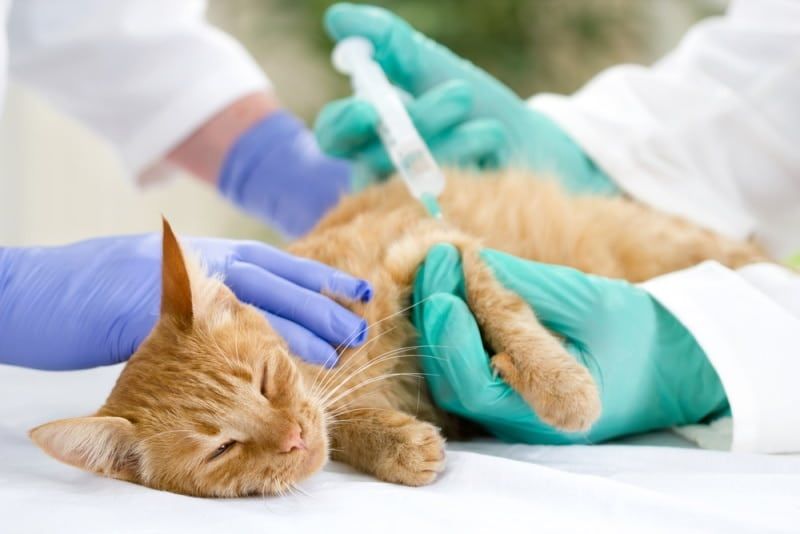Cat vaccinations refer to the injection of antigens designed to stimulate an immune response in cats to specific viruses, bacteria, or other disease-causing organisms. The purpose of cat vaccines is to protect against infectious diseases like rabies, panleukopenia, feline leukemia, and more that can cause life-threatening illness in cats if contracted. Vaccinating cats has been shown to save lives and reduce the spread of disease between animals and to humans (For example, see https://catfriendly.com/keep-your-cat-healthy/vaccines/ for more details). While no vaccine is 100% effective, most core vaccines for cats are considered very effective and crucial for disease prevention. The most common and important cat vaccines administered by vets are known as “core vaccines” and protect against very common and deadly diseases. Additional optional “non-core vaccines” may also be recommended based on a cat’s lifestyle and risk factors. Overall, most veterinarians strongly advise regularly vaccinating cats as per the standard schedule to provide immunity against the most dangerous feline viruses and bacteria. This can greatly reduce morbidity and mortality in the feline population and support public health as well.
Core Vaccines
Core vaccines are critical to all cats based on their risk of exposure and severity if infected. According to the AAHA Feline Vaccination Guidelines, the following are recommended core vaccines for cats:
Feline Panleukopenia Virus (FPV) – Also known as feline distemper, panleukopenia is a highly contagious and often fatal viral disease. The vaccine provides long-term immunity against infection.

Feline Viral Rhinotracheitis (FVR) – This upper respiratory infection is caused by feline herpesvirus-1 (FHV-1). Its vaccine provides immunity against 80% of FHV-1 field strains.
Feline Calicivirus (FCV) – A major cause of upper respiratory infections in cats. The vaccine provides protection against common strains but may not cover all emerging virulent strains.
Rabies – Rabies is fatal once clinical signs develop. Vaccination is required by law in most jurisdictions and prevents the spread of this zoonotic disease.
Non-Core Vaccines
In addition to the core vaccines, there are some other non-core vaccines that may be recommended for cats based on lifestyle and risk factors:
Feline Leukemia Virus (FeLV) – FeLV is spread through saliva, so outdoor cats or multi-cat households are at higher risk. Infection can suppress the immune system and lead to cancer. Vaccination is recommended for higher risk cats. (Non-core Vaccines for Pet Cats)

Feline Immunodeficiency Virus (FIV) – Similar to HIV in humans, FIV weakens the immune system. It spreads through bite wounds, so free-roaming outdoor cats are at risk. Vaccination may help reduce infection risk. (What Are the Core and Non-Core Vaccines for Cats?)
Chlamydia – Chlamydia felis causes upper respiratory infection in cats. It spreads easily between cats, so multiple cat households may benefit from vaccination.
Feline Infectious Peritonitis (FIP) – FIP is caused by a mutation of the feline coronavirus. Vaccines provide limited protection, but may help for cats at high risk of exposure. (Vaccines for Cats – VCA)
Lifestyle Factors
A cat’s lifestyle and environment play a big role in determining their vaccination schedule. Indoor cats are at lower risk for diseases than outdoor cats who are more likely to come into contact with infected animals. According to vaccination guidelines from ABCD cats & vets, indoor cats only need core vaccines, while outdoor cats need both core and non-core vaccines.
In multi-cat households where diseases can spread easily between cats, veterinarians may recommend more frequent vaccinations or additional non-core vaccines. Kittens are especially vulnerable when young, so start their vaccination schedule as early as 6-8 weeks and follow up with boosters every 2-4 weeks until 16 weeks old.
For indoor cats in single cat households, vets typically recommend just the core FVRCP and rabies vaccines on an annual or triannual basis. Outdoor cats or those in shelters/boarding facilities will need additional vaccines like FeLV to protect against infectious diseases they are more likely to encounter.
Vaccination Schedule
The core vaccination schedule for kittens starts at 6-8 weeks of age, with a booster shot given every 3-4 weeks until kittens reach 16 weeks old. The primary core vaccines given during this time include FVRCP, which protects against rhinotracheitis virus, calicivirus, and panleukopenia virus, and FeLV, which protects against feline leukemia virus. According to PetMD, the typical schedule is:

- 6-8 weeks: FVRCP (first dose), FeLV (first dose)
- 10-12 weeks: FVRCP (second dose), FeLV (second dose)
- 14-16 weeks: FVRCP (third dose), FeLV (third dose)
After a kitten receives their full initial series of core vaccines, they should receive a booster shot one year later. Following the first annual booster, core vaccines are renewed every three years. Adult cats may receive a FVRCP booster every year before the three year schedule if they are at high risk of exposure. Annual FeLV boosters are recommended for cats with outdoor access. WebMD notes rabies vaccines are given yearly in many locations after the first dose at 12-16 weeks.
Risks and Side Effects
Like any medication, cat vaccines can also have potential risks and side effects. However, these are relatively uncommon and mild in most cats. Some of the more common side effects seen include:

- Mild fever
- Lethargy
- Decreased appetite
- Local swelling, discomfort, or hair loss at the injection site
According to the AVMA, serious vaccine reactions are very rare, occurring in less than 1 in 10,000 vaccinated cats. These can include:
- Severe allergic reaction (anaphylaxis)
- Cardiovascular shock
- Sudden death
Cats may also develop sarcomas, or cancerous growths, at the vaccine injection site, although this is extremely rare (estimated at 1-3 cases per 10,000 vaccinated cats). Kittens and cats with compromised immune systems may be at higher risk of adverse reactions. Vaccines are contraindicated in sick cats, so vets recommend waiting until cats recover before vaccinating.
While serious vaccine reactions are very uncommon, owners should monitor cats after vaccination for any concerning symptoms like difficulty breathing, walking, or swelling at the injection site. Contact your vet immediately if you notice anything abnormal after vaccination. With routine precautions, the benefits of protection afforded by core vaccines far outweigh any small risks.
Source: Feline Vaccines: Benefits and Risks – Cornell Feline Health Center
Cost
The cost of cat vaccinations can vary depending on your location, veterinarian, and the specific vaccines given. However, most core vaccines range from $15-$45 per vaccine. According to The LA Times, the feline distemper combination vaccine costs around $20, while the rabies vaccine is closer to $45.
Non-core vaccines, like feline leukemia and FIP, tend to be more expensive, costing $25-$60 each. Your veterinarian may recommend a full series of kitten vaccines in the first year, which could total over $100. Adult booster shots are cheaper, averaging $50-$150 per year depending on lifestyle factors.
While the upfront cost may seem high, vaccinations protect your cat’s health in the long run. Regular vaccines can help you avoid costly illnesses down the road. And you can reduce the expense by using low-cost vaccination clinics or pet insurance.
Exemptions
There are some situations where cats may be exempt from receiving certain vaccinations. Some of the common exemption reasons include:
Medical exemptions – Some cats may have medical conditions that make vaccination unsafe. Conditions like immune-mediated diseases, cancer, recent surgery, or allergies to vaccine ingredients may warrant an exemption. In these cases, a veterinarian can provide a medical exemption letter detailing why the standard vaccination schedule should not be followed.1
Titer testing – Antibody titer tests can check a cat’s existing immunity to diseases like panleukopenia, calicivirus, and rabies. If antibody levels are high enough, some veterinarians may provide a medical exemption from booster vaccines.1 However, standard vaccination may still be recommended in many cases.
Legal exemptions – In some locations, legal exemptions can be obtained to forego rabies vaccination. However, this comes with risks since an unvaccinated cat may need euthanasia if exposed to a rabid animal.2 Annual renewal is required and exemptions may not be accepted by boarding facilities, groomers, etc.
Boosting Immunity
There are several ways cat owners can help boost their cat’s immune system through diet and lifestyle changes. Proper nutrition is key – cats need adequate protein, vitamins, and minerals to support immune function. Feeding your cat a high-quality diet with plenty of protein sources like chicken, fish, eggs, and organ meats can provide the building blocks for a healthy immune response. Many veterinarians recommend supplementing with antioxidants like vitamins C and E, which help fight free radicals and inflammation. Probiotics can also strengthen immunity by promoting healthy gut bacteria. Reducing stress through environmental enrichment with toys, cat trees, and scratching posts is also beneficial. Keep litter boxes clean and try pheromone diffusers for anxious cats. Providing adequate, low-stress vet care like timely vaccinations and wellness exams will also keep your cat’s immune system primed and ready to fight off any illness.
As veterinarian Dr. Margie Scherk notes, “The best way to keep your cat healthy is to provide excellent day-to-day care – high quality food, clean water, a safe interesting environment, lots of love and attention, and regular veterinary care. This forms the foundation for a strong immune system.” (Source)
Conclusion
Vaccinating your cat is extremely important for protecting them against serious and potentially fatal diseases. The core vaccines protect against the most common and contagious feline illnesses, while non-core vaccines may be recommended depending on your cat’s risk factors and lifestyle. It’s critical to follow your vet’s recommended vaccination schedule, as skipping or delaying vaccines leaves your cat vulnerable during the gaps in immunity. While some risks and side effects are possible, the dangers posed by infectious diseases far outweigh the minimal risks of vaccination in most cases. Regular boosters are vital as well to maintain your cat’s immunity over their lifetime. By staying up to date on all recommended vaccines, you are providing your feline companion with the best protection possible against disease and ensuring their long-term health and wellbeing. Your veterinarian understands your cat’s individual needs and will guide you on the ideal vaccination plan to keep them happily healthy.

